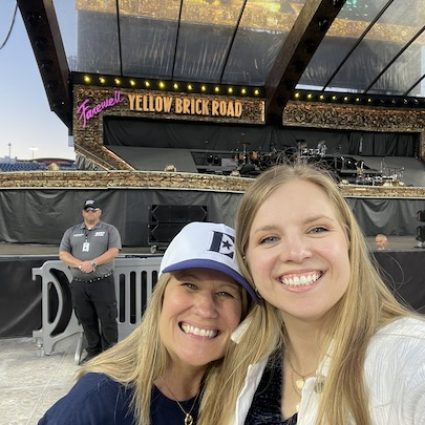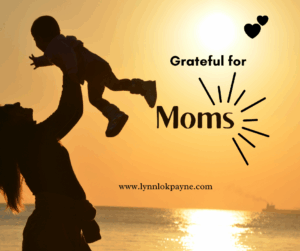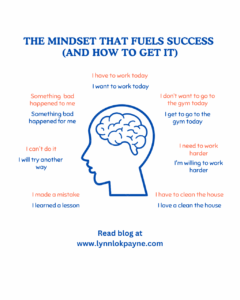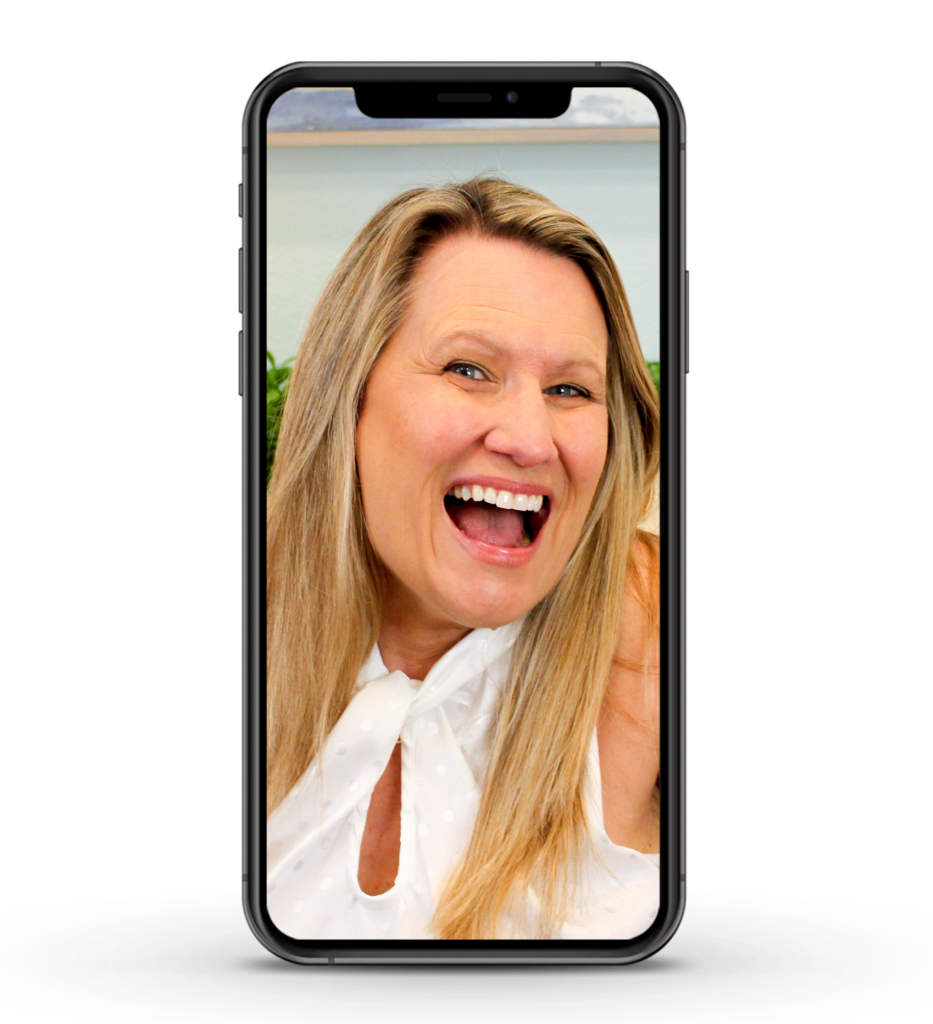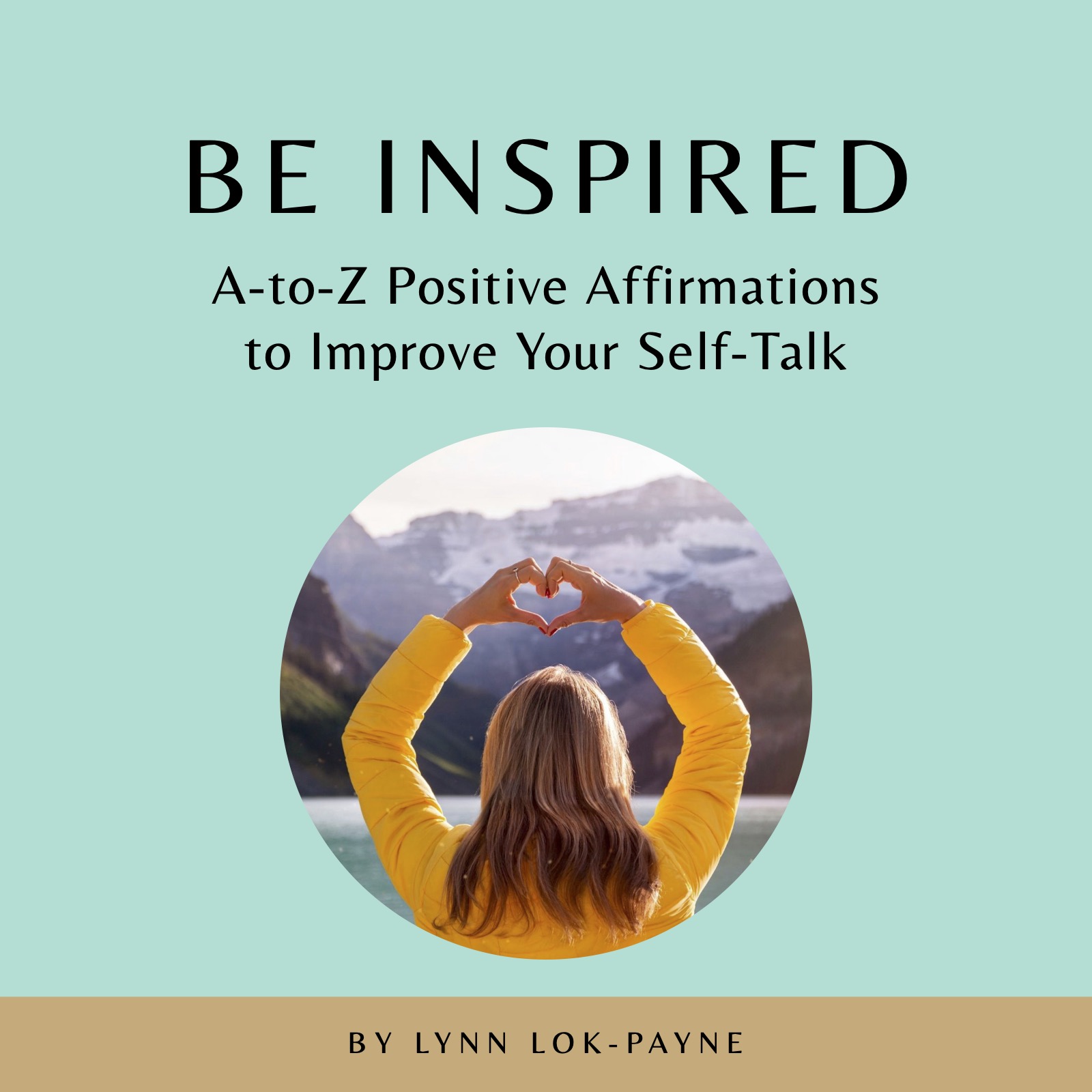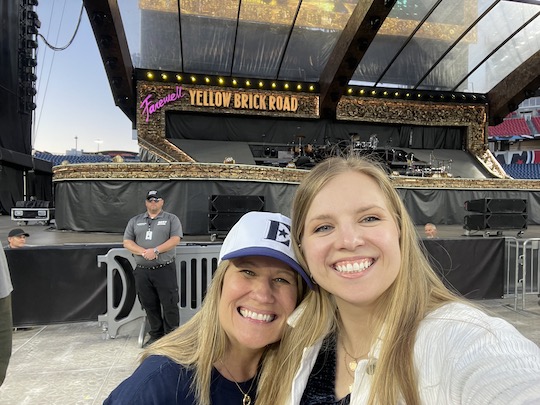
AFFIRMATION: Music heals my soul.
Music heals because it fills our hearts and touches our soul in a way nothing else can. We may not know the language someone speaks, but music creates a bond allowing us to feel a common ground.
It is a universal language which brings people together. During a Bon Jovi concert, Jon stated that music builds bridges. I think music helps to bridge the gaps that divide us. For a few hours during a concert, we connect to a community. When we see band members savoring the performance, appreciating the crowd, and genuinely happy, we feel their joy too. This positive energy is experienced throughout the room and links us all.
The picture on this post is from one of the Elton John’s Farewell Tour concerts I attended with my daughter. You could feel the energy, love, and connection of the band and the audience. It was so joyful and energetic that I didn’t want it to end. You truly could “Feel The Love Tonight.”
Music is therapeutic. According to Beverly Merz at Harvard Health Publishing, music therapy can improve medical outcomes. It can help to restore lost speech, reduce side effects of chemotherapy, aid in pain relief, and help to recall memories in dementia patients. ¹ Music is healing medicine.
Concerts and Connection
Attending a concert always lifts my mood. Live performances offer so much powerful, positive energy that it awakens my spirit and body to dance all night. One of these amazing experiences was Desert Trip in 2016, or as some called “The Coachella for Old People” or “Oldchella.” It was one of the most peaceful concerts I have ever been to— surprising since there were around 75,000 in attendance. The average age of the performers was 72 but the median of the ticket buyers was 51. ² This shows music can cross over several generations, as I saw everything from babies and millennials to boomers and older enjoying music from a previous time.
Watching artists perform songs magnificently from their humble beginnings, demonstrates age is irrelevant. Music keeps us young, sparks inspiration, heals, and bands us together. It is a connection larger than ourselves. And there is scientific evidence that proves this.
According to UC Berkeley’s Greater Good Magazine, “How Music Bonds Us Together” by Jill Suttie, states, “Listening to music and singing together has been shown in several studies to directly impact neuro-chemicals in the brain, many of which play a role in closeness and connection.”³ The article explains that music releases endorphins which can bring about social closeness and help us feel like we are part of a group.
We can also find a musical connection in nature, whether it is the birds singing or the leaves of the trees rustling together on a blustery day. Even the earth creates its own humming music. Waves hitting each other and brushing against the ocean floor create a vibration, producing a humming sound. And NASA has been able to convert radio emissions to sound waves.4 Yes, music is the universal language.
You know what music is? God’s little reminder that there’s something else besides us in this universe; harmonic connection between all living beings, everywhere, even the stars. — Robin Williams, American actor, comedian, philanthropist
Messages in Music
Popular music speaks to our time and can vocalize what’s currently taking place. It has shaped many generations and led to social and cultural movements. In the 1960s, music gave a voice to young adults which helped change the foundations of our world forever. “The 1960s birthed a cultural revolution that changed San Francisco forever, and it was fueled by the music. . . . The music had mystical properties. And instead of singing about cars and boy-meets-girl drama, social and political narratives were plentiful in the lyrics,” wrote Peter Hartlaub, San Francisco Chronicle’s pop culture critic. 5 Music gives a voice to motivate change.
Where words fail, music speaks. — Hans Christian Anderson, Danish fairy tale writer, author, poet
Singer-songwriter Bob Dylan is celebrated for his lyrics about peace and freedom during the civil rights and anti-war movements. Dylan won the Nobel Prize for Literature in 2016 for his poetic lyrics, the first songwriter to receive the award.
Music written about war and protest go back centuries to before pre-American revolutionary times. “The Liberty Song” by John Dickinson was set to the tune of “Heart of Oak,” the anthem of the Royal Navy of the United Kingdom.6 “American Taxation” by Peter St. John sung of taxation, liberty, and independence from the British monarchy. These melodies were widely understood and could easily travel from colony to colony. Songs were calls to action and would communicate a story.7 By using tunes people were already familiar with and writing new lyrics, the new ballad would easily be remembered. Lyrics are just stories set to music.
Music communicates meaningful, and sometimes healing messages, sometimes coming from an unexpected place. Disney’s movie Frozen won Best Original Song at the 2014 Oscars, beating out music giants such as U2 and Pharrell Williams. “Let It Go” became an anthem to young and old alike. Some might have connected to Elsa’s feelings of isolation and the concealment of her truth while trying to remain perfect. The message is about letting go of fear and what others think about us. When we realize there is no right or wrong way, we can stop striving for perfection, and when we do, freedom is found. This song holds important teachings, and it all came from an animated children’s movie. Real life lessons can be expressed through song.
Music can change the world. — Ludwig van Beethoven, German composer, pianist
Music Inspiration and Healing
Some people are inspired to write music and lyrics, and others get moved just by listening. I can pretty much relate all of life to a song. There are times the lyrics and melodies resonate so deeply that it feels as if the song was recorded just for me. Music is healing and the timeline and soundtrack of my life. Hearing an old song stirs up memories of days gone by.
We remain in the air, the empty space, in the dusty roots and deep earth, in the echo and stories, the songs of the time and place we inhabited. — Bruce Springsteen, from Born to Run, American singer, songwriter, musician
When I was a small child, Saturday mornings meant watching American Bandstand and Soul Train. Singing and dancing in front of the television ignited my soul by hearing an artist’s new song and seeing the audience’s dance moves. This was my church and I wanted to connect to this musical tribe. Music grants me the opportunity to connect to my spirit and something outside of myself. I would feel this same kinship rummaging through the stack of albums and 45s at Tower Records with other music lovers.
Music Heals Our Emotions
Music provides a vehicle through which we can express our feelings. Hearing a song may bring up hidden emotions or put words to sentiments that we cannot explain. Its language can communicate different points of view, transforming our perspective. Insightful lyrics like Elton John’s, “Sad Songs,” help us relate to one another. They allow us to connect and acknowledge our sadness, which is needed to process and release emotions. Hopefully, by liberating the hurt, hope and a better outlook can enter. Music heals and is therapy for the mind, body, and soul.
For me, singing sad songs often has a way of healing a situation. It gets the hurt out in the open into the light, out of the darkness. — Reba McEntire, American singer, songwriter, actress, entrepreneur
Happy and upbeat music can put us into a positive mood. Even if we are in a negative space, a cheerful song can make us feel better. Pharrell Williams’s “Happy” gets my feet moving and always makes me smile. Lyrics can have inspirational lessons. Bobby McFerrin’s “Don’t Worry Be Happy” states life may bring struggles but worrying will make it worse.
I have always said God gave me the passion to sing but not the voice. If I could have done anything in the world, I would have been a singer. There must be some karmic lesson in this, but I have not figured it out yet.
Make a playlist of uplifting songs to help brighten the mood when feeling down. I call this Music Therapy for a Happy Soul. Then crank up the volume and have fun. One of my favorite activities is to take a drive in a scenic area listening to music with the windows down.
Here I feel the warmth of the sun and breathe in the fresh air, singing along with a song like Three Dog Night’s “Out in the Country.” These drives always enlighten my spirit and bring me peace. Let music move you and let it feed your soul. Any music that touches your heart is healing. Don’t be shy. Just sing.
- Beverly Merz, “Healing through Music,” Harvard Health Publishing, Harvard Health Medical School, November 5, 2015, https://www.health. harvard.edu/blog/healing-through-music-201511058556.
2. Randy Lewis, “Desert Trip Brought Out The Boomers, But Its Appeal Was Ageless,” Los Angeles Times, October 9, 2016, https://www.latimes.com/ entertainment/music/la-et-ms-desert-trip-generations-20161005-snap-story. html.
3. Jill Suttie, “How Music Bonds Us Together,” Greater Good Magazine, Greater Good Science at UC Berkeley, June 28, 2016, https://greatergood. berkeley.edu/article/item/how_music_bonds_us_together.
4. “Spooky Space ‘Sounds’,” NASA, Accessed June 18, 2020, https://www. nasa.gov/vision/universe/features/halloween_sounds.html.
5. Peter Hartlaub, “San Francisco Sound: From Janis Joplin To The Grateful Dead, Music From The 1960’s Fuels A Social Revolution,” San Francisco Chronicle, July 4, 2015; last modified May 13, 2019, https://www.sfchroni- cle.com/oursf/article/Our-SF-Music-from-the-1960s-fuels-a-social-6364395. php.
6. “The Liberty Song,” Wikipedia, Accessed April 16, 2020, https:// en.wikipedia.org/wiki/The_Liberty_Song.
7. “History Notes: The Music Of Washington’s World—Pre-Revolutionary War: Protest Songs,” Fairfax Network – Fairfax County Public Schools, August 4, 2016, https://www.youtube.com/watch?v=C0r5D1YFt1w.
